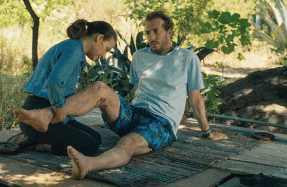And That’s Exactly How it Was


The 72nd edition of the Locarno Film Festival—the first under the artistic direction of Lili Hinstin—was notable for the strength of its documentary offerings, albeit hardly in the conventional sense. Within a solid line-up whose names and general tone didn’t deviate all that much from recent years, the films that stood out most were the ones that tapped into the realm of nonfiction—which isn’t to say they were necessarily documentaries. First and foremost among them was Pedro Costa’s Vitalina Varela (which walked off with both the Golden Leopard and the prize for Best Actress), much of whose force derives from the fact that its astounding protagonist is performing a version of her own life story.
Set against Costa’s singular, uncompromising vision, most of the rest of the Competition felt meek, quite possibly because their fictions felt at such a remove from matters of the real. While by Damian Manivel, who won Best Director, takes the true story of American dancer Isadora Duncan losing her two children in a car accident as its starting point, only in the last of the three present-day episodes that weave around this past tragedy does Manivel manage, which bafflingly took home the Special Jury Prize. Although the directorial skill Park evidenced in (2014) shines through at times, this scripted-to-death genre piece about the rotten core of a suitably barren-looking Korean island ends up more sudsy than Shakespearean. And João Nicolau’s repeats the supposed spectacle of an inept middle-aged businessman bursting into song at the wheel so frequently that it loses any initial bounce it had, as if having to endure yet another story of an affluent, vaguely lascivious white guy ending up with the girl weren’t a downer enough.
You’re reading a preview, subscribe to read more.
Start your free 30 days





